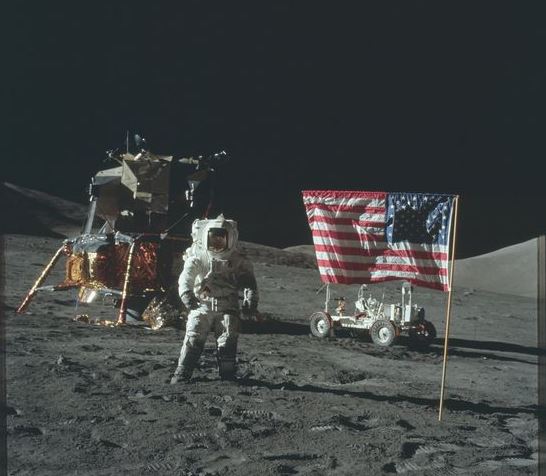Baseball, often referred to as “America’s National Game,” holds a special place in the cultural fabric of the United States. Its rich history, iconic moments, and enduring popularity have made it more than just a sport; it’s a symbol of American identity and tradition. This article explores the origins, evolution, and impact of baseball in America, providing a comprehensive understanding of why it remains so deeply cherished.
The Origins of Baseball
The roots of baseball can be traced back to various bat-and-ball games played in England, such as rounders and cricket. However, it was in the United States that these games evolved into the modern sport we recognize today.
- Early Beginnings: The first recorded baseball game in America took place in 1846 in Hoboken, New Jersey, between the Knickerbocker Club and a team of cricket players. This game is often cited as the official birth of baseball, although informal versions of the game were played in the country as early as the 18th century.
- The Knickerbocker Rules: In 1845, Alexander Cartwright, a member of the Knickerbocker Club, codified the first set of official baseball rules. These rules laid the foundation for the sport, including the diamond-shaped field, the concept of “foul lines,” and the three-strike rule. Cartwright’s rules were instrumental in standardizing the game and facilitating its spread across the United States.
Baseball’s Rise to Prominence
As the 19th century progressed, baseball rapidly gained popularity, becoming a national pastime that brought communities together.
- Civil War Influence: The American Civil War played a significant role in popularizing baseball. Soldiers from different regions of the country introduced the game to one another, leading to its widespread adoption. By the war’s end, baseball had become a unifying force in a nation recovering from conflict.
- The Formation of Leagues: In 1869, the Cincinnati Red Stockings became the first professional baseball team, setting the stage for the formation of professional leagues. The National League was established in 1876, followed by the American League in 1901. These two leagues eventually formed Major League Baseball (MLB), the premier professional baseball organization in the world.
- The Deadball Era: The early 20th century was marked by what is known as the Deadball Era, a period characterized by low-scoring games and a focus on strategy rather than power hitting. Players like Ty Cobb and Honus Wagner became legends during this time, known for their speed, skill, and tactical acumen.
Baseball’s Golden Age
The 1920s and 1930s are often considered baseball’s Golden Age, a time when the sport reached unprecedented levels of popularity and produced some of its most iconic figures.
- The Rise of Babe Ruth: Babe Ruth, known as “The Sultan of Swat,” transformed the game with his incredible home run-hitting ability. Ruth’s power and charisma helped shift baseball’s focus from small ball strategies to power hitting, leading to a surge in fan interest.
- The Negro Leagues: During this time, baseball was segregated, with African American players excluded from Major League Baseball. In response, the Negro Leagues were established, providing a platform for some of the greatest talents in the sport’s history, including Satchel Paige and Josh Gibson. The integration of baseball in 1947, led by Jackie Robinson, marked a significant milestone in American sports and civil rights.
- The World Series: The World Series, established in 1903, became the pinnacle of baseball success, drawing immense attention and cementing the sport’s status as America’s National Game. Teams like the New York Yankees, with their storied history of championships, became synonymous with baseball excellence.

The Modern Era of Baseball
Baseball has continued to evolve, adapting to changing times while retaining its timeless appeal.
- Expansion and Globalization: Since the mid-20th century, MLB has expanded, adding new teams and spreading the sport’s popularity beyond the United States. Baseball has become a global game, with players from Latin America, Asia, and other regions making significant contributions to the sport.
- The Steroid Era: The late 20th and early 21st centuries saw baseball grappling with the issue of performance-enhancing drugs. The Steroid Era, as it came to be known, raised questions about the integrity of the game, but also sparked important conversations about health, ethics, and fairness in sports.
- Technology and Analytics: The advent of technology and advanced analytics has transformed baseball in recent years. Teams now rely on data-driven strategies, such as sabermetrics, to make decisions about player performance, game tactics, and roster construction. This shift has brought new excitement and complexity to the sport, appealing to a new generation of fans.
Baseball’s Cultural Impact
Baseball’s influence extends far beyond the field, shaping American culture, language, and identity in profound ways.
- American Identity: Baseball is often seen as a reflection of American values, such as teamwork, perseverance, and fair play. The sport has been a source of national pride, with moments like Lou Gehrig’s farewell speech and the “Shot Heard ‘Round the World” becoming ingrained in the American consciousness.
- Literature and Film: Baseball has inspired countless works of literature and film, from Ernest Thayer’s poem “Casey at the Bat” to the movie “Field of Dreams.” These cultural artifacts celebrate the game’s drama, nostalgia, and its ability to bring people together.
- Language and Idioms: Baseball has also left a lasting mark on the English language, with terms like “home run,” “strike out,” and “out of left field” becoming common idioms. These phrases are used in everyday conversation, often in contexts far removed from the baseball diamond.
The Future of America’s National Game
As baseball looks to the future, it faces both challenges and opportunities.
- Youth Engagement: One of the key challenges for baseball is attracting younger fans in an era of diverse entertainment options. Efforts to speed up the pace of play, introduce new technologies, and engage with digital media are part of MLB’s strategy to maintain and grow its fan base.
- Diversity and Inclusion: Baseball continues to work towards greater diversity and inclusion, both on and off the field. Initiatives aimed at increasing participation among underrepresented communities and ensuring equal opportunities are essential for the sport’s growth.
- Global Expansion: The globalization of baseball presents exciting opportunities for the sport. MLB has organized games and events in countries like Japan, Mexico, and the United Kingdom, showcasing the game to international audiences and expanding its global footprint.
Baseball’s designation as America’s National Game is well-earned, with a legacy that spans centuries and a cultural impact that resonates across the globe. From its humble beginnings to its status as a global sport, baseball embodies the spirit of competition, community, and tradition. As the game continues to evolve, it remains a beloved pastime, offering endless moments of joy, excitement, and connection for fans of all ages.




